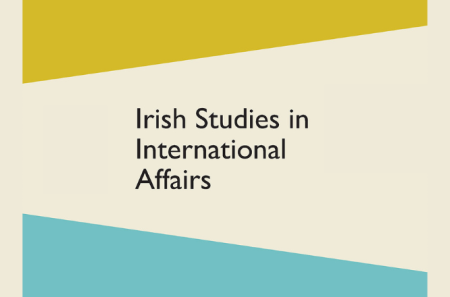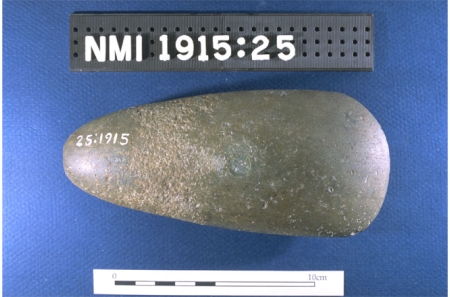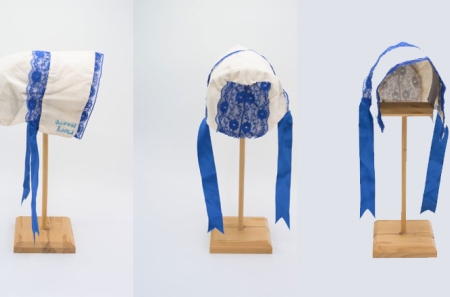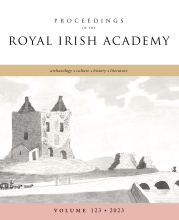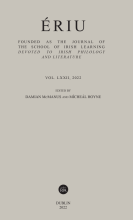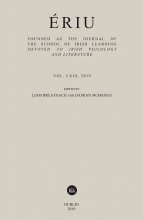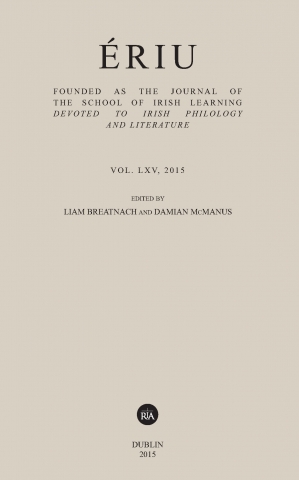
Ériu Volume XXXI (31), 1980 (Print Copy)

Edited by: David Greene and Proinsias Mac Cana
Ériu is devoted to Irish philology and literature, and from its foundation in 1904 the peer-reviewed journal has had a reputation internationally among Celtic scholars. In the century since its inception, Ériu has served as an outlet for the work of the early standard bearers of Irish language studies and Celtic studies and of each new generation of researchers in turn.
Earlier issues, along with the most recent issue, are available in print form exclusively here on our website or by subscription to JSTOR, and can be viewed there. Online copies are also available by subscription to JSTOR.
Included in the purchase of this print copy is the option for a free online copy of this issue on JSTOR.
All links below will take you directly to the article on JSTOR.
CONTENTS
- Some Remarks on the Relative in Old Irish (pp. 1-9)
Liam Breatnach
-
The Nasalizing Relative Clause with Object Antecedent in the Glosses (pp. 10-27)
Kim McCone
-
Aspect of Variant Word Order in Early Irish (pp. 28-38)
D. Mac Giolla Easpaig
-
The Verbal-Adjective Format -Iste in Ulster Irish (pp. 39-45)
Breandán Ó Buachalla
-
Diabhal (Deamhan 7RL.) Mar Dheis Chomhréire sa nGaeilge (pp. 46-58)
Mícheál Ó Siadhail
-
Is There Raising in Modern Irish? (pp. 59-99)
James McCloskey
-
Irish Words for 'Alphabet' (pp. 100-110)
Brian Ó Cuív
-
The Lament for Cummíne Foto (pp. 111-122)
Francis John Byrne
-
Intervention and Disruption in the Myths of Finn and Sigurd (pp. 123-131)
Joseph Falaky Nagy
-
'Gabh Umad a Fheidhlimidh': A Fifteenth-Century Inauguration Ode? (pp. 132-145)
Katharine Simms
-
Varia I. Wb. 13b1313b13 (pp. 146-149)
E. G. Quin
-
Varia II. Tadhg mac Céin and the Badgers (pp. 150-155)
Alan Mac an Bhaird
-
Coiste Náisiúnta Léann na Gaeilge (p. 155)
-
Varia III. Old Irish bé, ben 'Woman' (pp. 156-163)
Anders Ahlqvist
-
Varia IV (pp. 164-167)
Fredrik Otto Lindeman
-
Varia V (pp. 168-171)
Tomás De Bhaldraithe
-
Towards A Thesaurus of Poetic Diction in Old and Middle Irish Unrhymed Verse (p. 171)
-
Varia VI álad 'Wound' (p. 172)
Eric P. Hamp

